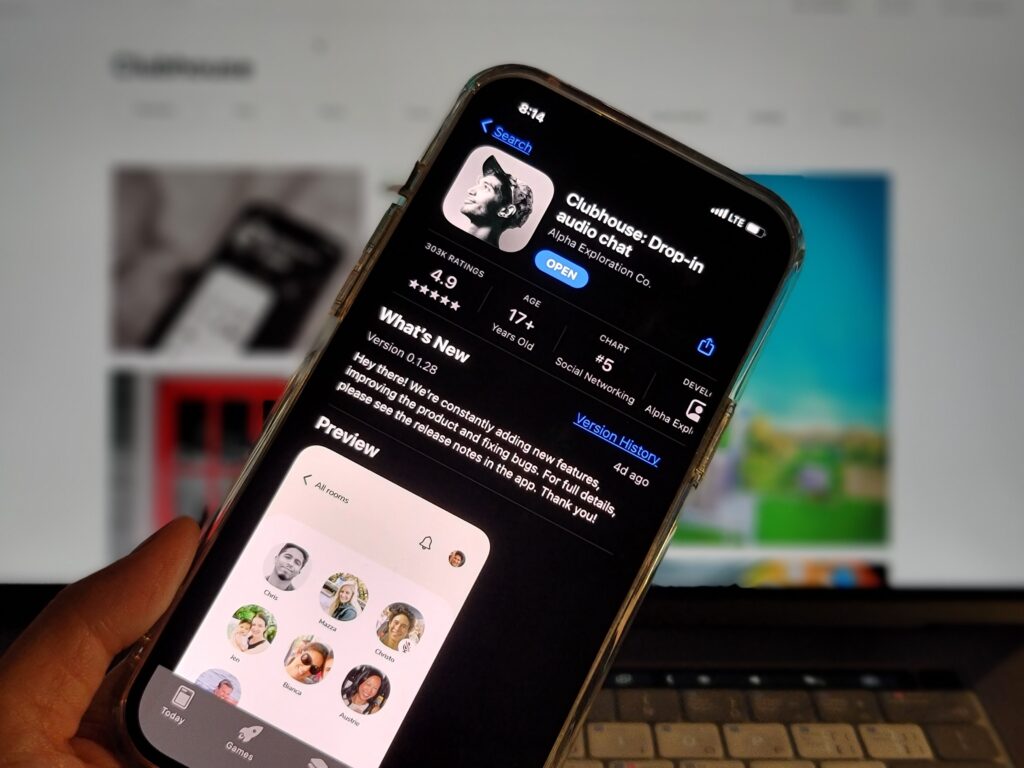
Clubhouse
The Clubhouse app is rapidly gaining popularity. Twitter, Facebook, Spotify and Linkedin are all working on a ClubHouse-like platform. But what makes these kind of audio apps so attractive? From my background as a social psychologist and scientific researcher into the dynamics of enthusiasm, I describe 10 factors that make Clubhouse so appealing from a psychological perspective. The factors were refined in discussions with several hundred Clubhouse users and numerous experts from a variety of fields.
- Low threshold
It’s simple to begin with Clubhouse, start a room or ask a question. It’s also fully accepted that you can go from group to group until you find an interesting room. This allows you to browse different topics, and go in search of surprises.
- Interactive
A room in Clubhouse is like a talk show where you can actively participate. If you want to say something, you virtually raise your hand, and you will almost always be invited to join the discussion or to ask a question. Most of the rooms are very interactive, as a result.
- Audio
It’s audio. After a year of video calls and sitting at a screen, this is especially liberating. You can listen while cooking, doing the washing up or having a walk. It’s also striking how confidence-inspiring audio is. Audio makes interaction intimate and human.
- Atmosphere of trust
Clubhouse forbids making recordings of the conversations. As a result, there is a confidential atmosphere. It also helps that almost everyone has a profile with their real name and a photo. People are not afraid to show their vulnerability. They are friendly, respectful and helpful, and that makes it a safe environment. Hopefully this atmosphere can be maintained as the app continues to grow.
- Pub atmosphere
The conversations feel intimate and close, even if you’re in a room with celebrities or successful entrepreneurs or gurus. It’s like standing in a pub and having conversations with people you know and strangers. Let’s face it, we’ve really missed that feeling in the past year!
- Pioneering
At the moment, the platform is still new for everyone, so there is a sense of pioneering. Everyone is still discovering and trying it out. You feel like you are part of a group of explorers.
- Inspiring and informative
There is an immense amount of knowledge being shared. Experts from all kinds of fields come together, discuss with each other and answer questions. Knowledge is shared explicitly, but also ‘between the lines’. It provides a stream of valuable insights and sparks creativity.
- Fear of missing out (FOMO)
It’s live and cannot be listened to later. There are so many fascinating conversations and special people that you quickly feel you could be missing something. That feeling is amplified because nothing is recorded. You can’t revisit anything and that makes it a little addictive. It’s live – right now.
- Networking
It’s amazing how quickly you get to know new people. This is something else we are missing during the current pandemic; we’re forced to stay in our own little bubble. On Clubhouse, you get to know people from other cultures and backgrounds.
- The magic of serendipity
Because the platform is so open and spontaneous, magical things happen. In many rooms, you meet special people, hear a valuable story or gain an insight. The fact that you don’t know exactly what’s going to happen only makes it more exciting.
Finally
There are definitely negative sides to Clubhouse as well. It is not yet accessible to everyone (so far only on iPhone, but that will change soon) and there are concerns about privacy. Also, not all the rooms are really worthwhile and some people are more inclined to excessive self-promotion.
It is also difficult to predict whether Clubhouse will still exist in a while. It is possible that one of the major social media giants will develop an even more attractive audio-only variant or take over Clubhouse and integrate it into their services. Regardless, the development of audio-only communities remains exciting and worth following closely.
Rijn Vogelaar is a psychologist and his work includes research into enthusiasm at Leiden University. He has written different books on the dynamics of enthusiasm and is a keynote speaker on this subject. You can find him on Clubhouse under his own name.
Photo by Erin Kwon on Unsplash
